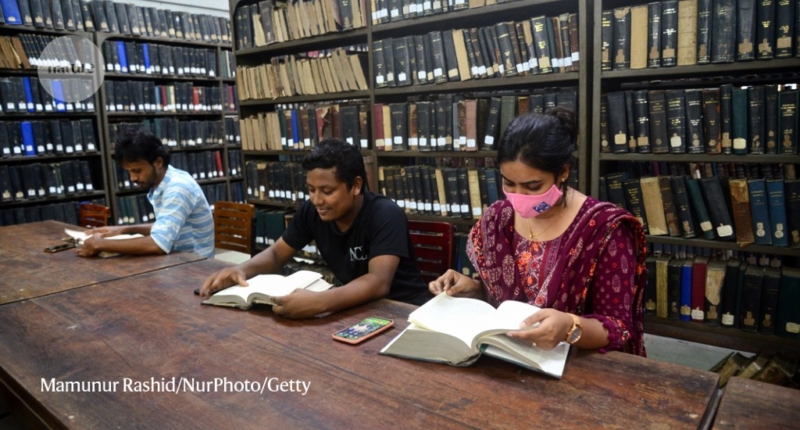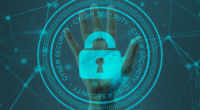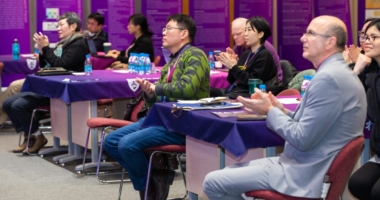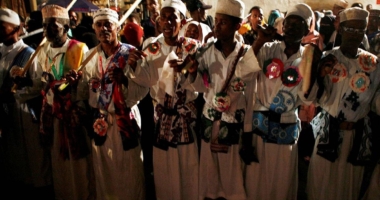Efforts to increase the participation of researchers from low- and middle-income countries (LMICs) in global research projects are being made by funders, institutions, and publishers. For example, the EDCTP and the US National Institutes of Health have launched projects led by African scientists aimed at addressing research priorities in LMICs. Both funders and collaborating institutions are also taking steps to enable the development of research-support systems in LMICs, such as computing infrastructure and mentorship programs. Moreover, governments of LMICs are being urged to recognize the value of funding research and to prioritize research funding. There are also calls to ensure that Indigenous knowledge is recognized and that community members or knowledge-holders are included in research teams with their contributions being adequately valued. Finally, global equity for global problems is necessary, and unfairness, inequity, and a lack of diversity must no longer prevent the global research enterprise from realizing the ultimate societal value and benefits of research.
The Cape Town Statement: Promoting fairness, equity, and diversity in research
In recent years, the scientific community has become increasingly aware of fraud and misconduct in research. The World Conferences on Research Integrity have played a significant role in addressing these issues and promoting responsible behavior in research. Since the first conference in 2007, the events have helped establish an academic field focused on research integrity.
However, last May’s conference in Cape Town, South Africa, marked a new chapter in the evolution of research integrity. Attendees at the 7th World Conference on Research Integrity recognized the ways in which research programs and practices disadvantage individuals living in low- and middle-income countries (LMICs) and added this issue to the suite of threats to the integrity of science.
As a result, a working group comprising bioethicists, researchers, institutional leaders, and journal editors has produced the Cape Town Statement on Fostering Research Integrity Through the Promotion of Fairness, Equity, and Diversity. The statement comprises 20 recommendations and is a call to action that aims to turn the global conversation on inequity and unfairness in research into changes in practice by all stakeholders.
The statement’s recommendations were drawn from discussions involving approximately 300 individuals from an estimated 50 countries, including 16 African nations and 5 South American countries. The discussions took place over 18 months and covered the theme of “fostering research integrity in an unequal world,” which was also the theme of the Cape Town conference.
The statement addresses the fact that researchers and institutions from high-income countries tend to benefit more from global collaborations than LMIC collaborators. This inequality manifests in several areas, including the number of papers published, authorship, career progression, setting priorities for research, and the ownership of samples and data.
In response to these issues, the statement outlines several goals, including promoting equity in authorship and publication, recognizing and valuing diverse forms of knowledge, increasing access to research resources and infrastructure, and developing a framework for more equitable global research partnerships.
In conclusion, the Cape Town Statement represents a significant step in addressing issues of fairness, equity, and diversity in research. By calling on all stakeholders to take action, the statement provides a roadmap for achieving a more equitable and just research ecosystem that benefits individuals and communities around the world.
References:
Inequities in Scientific Collaboration: Challenges Facing Low- and Middle-Income Countries
Scientific collaboration can bring numerous benefits, but these benefits are often distributed unequally, with researchers and institutions from high-income countries reaping greater rewards than those from low- and middle-income countries (LMICs). This inequality is especially pronounced in medical and global-health research, which often involves LMICs. According to an analysis of papers related to COVID-19 from the top 10 medical and global-health journals during the first nine months of 2020, 66% of the authors were not from Africa, even though the papers contained content related to Africa or any African country. One in five articles had no author from Africa at all, and only 14% of papers had both an African first and last author.
One reason for this inequity is that research teams from high-income countries often secure a grant for a project and then seek local researchers in the LMIC of interest to collaborate with. The local researchers may be offered some grant money and co-authorship on a paper, but the lead research team typically conducts the analyses, with the local researchers only reviewing manuscripts. They often play the role of ensuring that the manuscript is culturally and politically acceptable3.
Even when research is conducted in a more equitable manner, sharing data can pose significant challenges for investigators in low-resource environments. For example, sharing data requires institutions to have the infrastructure and resources to curate, manage, store, encrypt, and deal with requests to access the data, which may not always be available in LMICs. Moreover, high-income-country funders often pressure researchers in LMICs to share their data quickly, relegating them to the role of data collectors for better-resourced teams. Secondary analyses of the data are often conducted by investigators from high-income countries, who were not part of the original project, and who may not have the same level of local knowledge and understanding as the original researchers.
The push towards openness and transparency in science publishing has created additional challenges for LMIC researchers. The costs to publish an article in gold open-access journals, which typically range from $500–$3,000, are prohibitive for most researchers and institutions in LMICs. As a result, researchers from these countries often publish their papers in subscription-based journals. However, scientists working in similar contexts are unable to access such journals because their institutions are unable to finance subscriptions. This makes it even harder for researchers to build on locally relevant science.
The Cape Town Statement on Fostering Research Integrity Through the Promotion of Fairness, Equity, and Diversity aims to address these and other issues related to inequities in scientific collaboration. The statement comprises 20 recommendations drawn from discussions involving approximately 300 individuals from an estimated 50 countries, including 16 African nations and 5 South American countries. The recommendations include promoting equity in authorship and publication, recognizing and valuing diverse forms of knowledge, increasing access to research resources and infrastructure, and developing a framework for more equitable global research partnerships. By calling on all stakeholders to take action, the statement provides a roadmap for achieving a more equitable and just research ecosystem that benefits individuals and communities around the world.
References:
The Cape Town Statement: Advancing Fairness and Equity in Global Research Collaborations
The integrity of research is threatened by imbalances in global research collaborations that arise from systemic bias, major disparities in funding and resources, and racial discrimination. In South Africa, a group of students and their professor published a study on the cognitive abilities of Coloured South African women, drawing racist conclusions that have since been debunked. A lack of diversity among the researchers, reviewers, and editors might have contributed to the publication of this research, which has now been retracted by the journal involved. Power imbalances also skew research priorities, with investigators pursuing goals that frequently overlook the needs of local people.
Various guidelines and tools have been developed to promote fairness and equity in research collaborations, including the guiding principles of the Commission for Research Partnerships with Developing Countries (KFPE), the Global Code of Conduct for Research in Resource-Poor Settings, and the BRIDGE guidelines. However, the Cape Town Statement is unique in that it recognizes that unfair practices can harm the integrity of all research, no matter the discipline or context.
Increase Diversity and Inclusivity
The Cape Town Statement focuses on four broad actions to increase fairness and equity in global research collaborations. The first action is to increase diversity and inclusivity, recognizing that diversity in research teams, including race, gender, and socioeconomic background, can lead to better research outcomes. The statement encourages the establishment of partnerships between institutions and communities in LMICs to promote more inclusive research.
Promote Equitable Authorship and Publication
The second action is to promote equitable authorship and publication, recognizing that unfair practices can result in LMIC researchers being relegated to the role of data collectors for better-resourced teams. The statement encourages the promotion of equity in authorship and publication, including the recognition of diverse forms of knowledge.
Increase Access to Resources
The third action is to increase access to research resources and infrastructure, recognizing that sharing data requires having the necessary institutional infrastructure and resources to curate, manage, store, and encrypt the data. The statement encourages high-income-country funders to provide more support to LMIC researchers, including resources for data management and infrastructure.
Develop a Framework for More Equitable Global Research Partnerships
The fourth action is to develop a framework for more equitable global research partnerships. The statement encourages stakeholders to take action to build partnerships based on mutual trust, respect, and accountability. The statement also calls for the development of a framework for more equitable global research partnerships that addresses issues such as ownership of samples and data, setting research priorities, and sharing benefits.
The Cape Town Statement is a call to action for all stakeholders involved in research collaborations to promote fairness, equity, and diversity. The statement provides a roadmap for achieving a more equitable and just research ecosystem that benefits individuals and communities around the world.
The underrepresentation of low- and middle-income countries (LMICs) in research collaborations is a complex issue stemming from systemic bias, racial discrimination, and disparities in funding and resources. Such imbalances in global research collaborations impact the integrity of research in several ways. For instance, research priorities may overlook the needs of local people, and unfair practices can harm the integrity of all research, regardless of the discipline or context.
The Cape Town Statement on fairness, equity, and diversity in research is a recent guideline aimed at addressing these issues. The statement calls for greater diversity and inclusivity, encourages fair practices in research, and supports LMICs’ researchers. More importantly, it recognizes that unfair practices can harm the integrity of all research, no matter the discipline or context.
One way to increase diversity and inclusivity is to establish long-term relationships with people from different disciplinary, geographical, and cultural backgrounds. This will require high-income country researchers to collaborate meaningfully with people from LMICs, and to avoid parachute or helicopter research. Additionally, funders should include diversity stipulations in their calls for grant applicants and fund local researchers directly.
The London School of Hygiene and Tropical Medicine is an example of a research institution that has taken steps to address underrepresentation. Its Decolonising Global Health initiative, launched in 2019, aims to tackle the organization’s members’ unacknowledged positions of advantage. The initiative has involved several undertakings, including a series of educational lectures.
To encourage fair practices in research, all stakeholders must ensure that they are not exacerbating power imbalances in research collaborations. This includes researchers, institutions, funders, journal editors, and publishers. Research institutions should develop and implement policies, structures, and processes that support and promote diversity and inclusivity in research.
In conclusion, addressing issues of fairness, equity, and diversity in research requires a concerted effort from all stakeholders. By adopting the recommendations of the Cape Town Statement, researchers, institutions, funders, journal editors, and publishers can help promote greater integrity in research and address systemic imbalances in global research collaborations.
Inequities in Global Research Collaborations and Their Impact
A lack of diversity and inclusivity in global research collaborations continues to impact the integrity of research in various ways. Racial discrimination, systemic bias, and significant disparities in funding and resources all contribute to the problem.
Ways to Improve Fairness and Equity
There are various ways to improve fairness and equity in global research collaborations. Funders from high-income countries should include diversity stipulations in their calls for grant applicants, which should discourage parachute or helicopter research. Local researchers should be funded directly to avoid power imbalances in research collaborations. Moreover, researchers in high-income countries must collaborate in more meaningful ways with people from different backgrounds.
Actions to Encourage Fair Practice in Research
Before conducting research, projects involving multiple countries should begin with a period of discussion involving all potential stakeholders. The roles of each team member and how they will receive recognition should be defined and agreed upon. Furthermore, projects should be fully and transparently budgeted. Publishers and journal editors must question submissions from authors if data have been collected in a low- or middle-income country but the lead and collaborating authors are from high-income countries. This is to ensure that local researchers are involved in all stages of the research.
Steps Taken to Address the Issue
Funders are making progress on diversity and inclusivity, with the EDCTP awarding 60% of its grants to institutions in sub-Saharan Africa. In 2021, the US National Institutes of Health launched a $74.5 million five-year project called Data Science for Health Discovery and Innovation in Africa, which is creating a pan-African data network designed to address African research priorities. Meanwhile, publishers and journal editors such as The Lancet and Nature journals are taking steps to ensure that local researchers are acknowledged in papers submitted to their journals.
Overcoming Obstacles
Publishers, science councils, and funders need to identify and address obstacles that make it harder for researchers in low-resource settings to participate in open science. Embargoes should be placed on data collected by researchers in LMICs for two years, for example, to give investigators time to conduct secondary analyses and share their data with collaborators at their discretion. Journals and publishers should also adjust article processing costs for authors in low-resourced regions.
Improving Access to Research for LMICs
Over the years, Research4Life has been instrumental in providing students and researchers in LMICs with access to peer-reviewed content from over 200 publishers. Unfortunately, many major research contributors in LMICs do not qualify for access, fee waivers, or cost reductions for open-access publishing through this platform. This calls for more infrastructure and support to improve access to research in these countries.
Developing Research-Support Systems in LMICs
Institutions in LMICs often have underdeveloped research management and financial systems. Researchers in these countries struggle to meet the due diligence requirements of some funders in high-income countries, and this limits their ability to participate in research collaborations. Collaborating institutions and funders should take steps to enable the development of research-support systems in LMICs. This could mean providing computing infrastructure, mentorship programs, open-access publishing, or training and salaries of project and financial managers.
Investing in Research Ethics Committees
Controversies surrounding research ethics in the 1980s and 1990s prompted the Fogarty International Center at the NIH to establish the International Bioethics Education and Career Development Award. This initiative aimed to create strong research ethics committees in LMIC institutions, with adequately trained members, to review studies and meet international ethics and regulatory standards required by US funders. The program has trained hundreds of people in Africa and Asia in research ethics, and these trained individuals continue to serve on review boards.
Conclusion
Investing in long-term infrastructure and training initiatives is essential to support research in LMICs. This includes providing researchers in LMICs with access to peer-reviewed content, developing research-support systems, and investing in research ethics committees. These efforts can improve equity in research collaborations, reduce power imbalances, and support the development of a more inclusive and ethical research landscape.
Encouraging Investment in Research in Low- and Middle-Income Countries (LMICs)
Inequitable global distribution of resources is a growing problem that has long been a concern for researchers and policymakers. One of the most significant challenges facing LMICs is the lack of investment in research. To address this issue, governments of LMICs need to recognize the importance of research funding and commit to investing in research that addresses locally relevant priorities.
Matched Funding Schemes
Matched funding schemes could provide a solution, where governments commit to providing institutions with the same amount of funds as those obtained from other sources for nationally identified high-priority research. The Science Granting Councils Initiative launched in 2015 aims to strengthen the management of research grant funding in 17 African countries. For the initiative to succeed in bringing more support for and control of scientific research into the continent, African countries must prioritize research funding.
Recognition of Indigenous Knowledge
The development of codes of ethics based on the values of Indigenous communities is another way to ensure that community members or knowledge-holders are included in research teams, with their contributions being adequately valued. In Namibia, the San people have developed their own code of ethics to protect their community from exploitation by researchers.
Addressing Global Problems with Equity
Addressing the greatest challenges facing humanity, including climate change, requires a commitment to global equity. Researchers must work together to ensure that the contributions of researchers from LMICs are not sidelined or subjected to systemic bias, which can undermine the integrity and ultimate societal value of research.
To achieve these goals, funders, collaborating institutions, publishers, and journal editors must take steps to enable the development of research-support systems in LMICs. Such steps could include paying for computing infrastructure, mentorship programs, open-access publishing, training and salaries for project and financial managers.
With long-term investment in infrastructure and training, researchers in LMICs can be equipped to tackle global challenges effectively. Through collaboration, inclusivity, and respect for Indigenous knowledge, the global research enterprise can ensure that scientific integrity is maximized, and the benefits of research are realized equitably.
Don’t miss interesting posts on Famousbio










